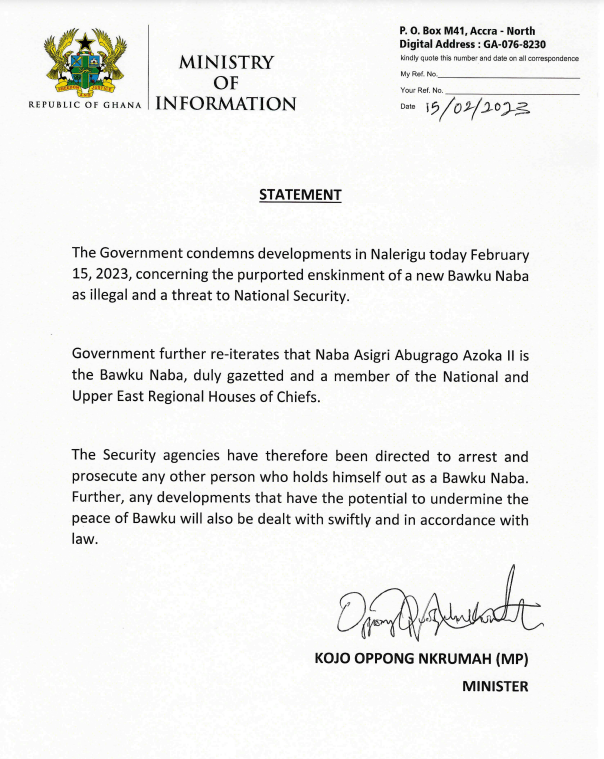Minister of Works and Housing, Kojo Oppong-Nkrumah, has clarified that the government has no intention of selling the Saglemi, Adentan, or Koforidua housing projects to any private sector.
Speaking at a press briefing in Accra, the minister explained that the government is instead, seeking technical expertise and resources of the private sector to complete the projects
He emphasized that government plans to sell the completed housing units to workers’ unions, and government workers on completion, remains a priority.
“We are working with the private sector to resolve these projects. On multiple occasions, people have mistakenly said we are selling these projects. I want to repeat, for the umpteenth time, that we are not selling the Saglemi, Adentan, or Koforidua housing projects to the private sector,” he stressed adding:
“We have invited the private sector to participate with their funding and technology. They will provide the capital, and we will use their resources to complete the project. As originally intended, these housing units will then be sold to members of workers’ unions and government workers.”
Mr Oppong-Nkrumah further disclosed that funds recouped from the sale of the housing projects would be used to offset those sourced from the private sector, with potential profits returned to the government.
He explained: “The funding provided by the private sector will be repaid, and whatever investment the government makes will also be recouped. So, I reiterate, that we are not selling these projects; we are working within a public-private partnership (PPP) framework to complete them.
“The fact that the government doesn’t currently have enough funds in its treasury doesn’t mean these projects should remain stalled. The government is being innovative in raising private capital to finish these projects,” the minister further remarked.
The involvement of the private sector in the completion of the Saglemi Housing project has been protested by the Minority in Parliament and the National Tenants’ Union of Ghana, who have threatened a lawsuit against the government over the matter. The union argued that such involvement will jeopardize efforts to provide affordable housing for those unable to afford current market rates.
The government is seeking $100 million in private capital from investors to complete the Saglemi Affordable Housing project commenced by the erstwhile Mahama-led government in 2012. So far, about $198 million has been invested in the stalled project.
The New Patriotic Party government initiated the Affordable Housing Programme in 2006 to provide accommodation for the low-to-middle-income workers of the country. The project commenced in six locations namely: Borteyman – Accra, Kpone – Tema, AsokoreMampong – Kumasi, Koforidua, Tamale and Wa. However, these projects have stalled since 2008.
Ghana’s housing crisis has persisted for decades despite the government’s efforts to tackle the issue. Many Ghanaians still struggle to find affordable and quality housing.
Watch video below:
Saglemi, Adentan, Koforidua Housing projects not being sold to private sector – Oppong-Nkrumah
— TIG Post (@tigpost_) October 2, 2024
Funny Face | Partey | Black Stars | World War 3 | Accra Sports Stadium | Burna | Owusu Bempah | Yamal | Boko Haram | Opay | #tigpost pic.twitter.com/JtP9X1hBZm
































